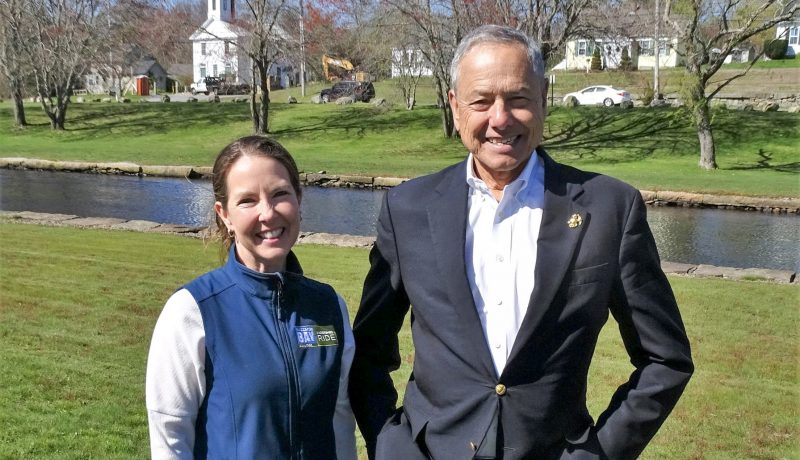Reducing Pollution From Your Septic Systems Just Became More Affordable
July 29, 2022 — Residents around Buzzards Bay are poised to receive financial assistance for septic system upgrades from the State, thanks to the sustained efforts of Buzzards Bay Coalition and State Representative Paul Schmid (D-Westport). Yesterday Governor Charlie Baker signed the FY2023 State Budget into law that includes language which provides residents around Buzzards Bay access to low interest loans through their local boards of health to repair or upgrade their current septic systems to nitrogen reducing septic systems.
The single largest source of nitrogen polluting our coastal waters around Buzzards Bay comes from individual septic systems. Nitrogen from our wastewater flows to our sensitive coastal waters making algae grow and causing our waters to look cloudy and murky. Eelgrass has died off in many areas and our fish and shellfish have slowly disappeared. Reversing this decline means upgrading our septic systems with technologies that reduce nitrogen. Upgrading septic systems can be a costly investment for many homeowners but the State Budget approved yesterday helps make that investment much more manageable for homeowners and is an environmental win for the Bay.
Before today, the community septic loan program only provided low interest loans to homeowners who were required to upgrade a failed septic system. Language passed in the State Budget allows homeowners who are required, or who voluntarily elect, to upgrade their existing septic systems to nitrogen reducing systems to take advantage of that same loan program.
The low interest loan is a Betterment (financial) Agreement between the community and the homeowner, where the town agrees to provide financial assistance to the homeowner to repair, replace and/or upgrade their on-site system. The town will establish an account, just like a loan, that will be paid back over time. The loan will show up as an additional line item on the homeowner’s real estate tax bill. The funds borrowed by the homeowner may be used for all costs necessary to repair or replace an on-site septic system including engineering and design costs. Loans can be spread over a period of up to 20 years. Interested homeowners should see their local Board of Health for more specific information and to obtain an application to enter into a Betterment Agreement.
The amount of money the town can loan to homeowners will depend on the amount of money the municipality requests from the State Revolving Fund each year. The amount available will vary based on community.
Working in close partnership with the Coalition, Representative Schmid sponsored the language in the budget that enables homeowners to obtain assistance from their local boards of health for the repair, replacement, or upgrade of septic systems that are not designed to reduce nitrogen.

Korrin Petersen, VP Clean Water Advocacy and Representative Paul Schmid
Where homes still employ septic systems, towns around coastal Massachusetts face dangerous levels of nitrogen pollution throughout their waterways. This heavy concentration of nitrogen has environmental and public health repercussions.
”The only way we protect our coastal waters is through improved wastewater treatment and we need to make those improvements as affordable as possible. The language passed in the State Budget makes nitrogen reducing septic systems significantly more affordable for homeowners by providing access to low interest loans.” Korrin Petersen, Vice President, Clean Water Advocacy, Buzzards Bay Coalition
The single greatest barrier in combatting pollution is the cost of wastewater infrastructure. The passage of this language was the Coalition’s top legislative priority this year. Today, the law now provides an affordable onsite solution which utilizes existing federal dollars already flowing to the state making this bill cost neutral to the Commonwealth by using an existing program to assist homeowners.
“It has been great to partner with the Buzzards Bay Coalition on such a crucial water quality issue, their knowledge on this issue has been critical. I am thrilled to see this legislation passed and signed into law.” State Representative Paul Schmid (D-Westport)